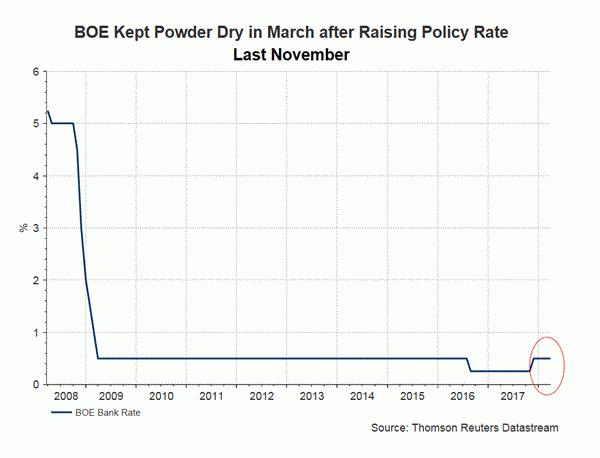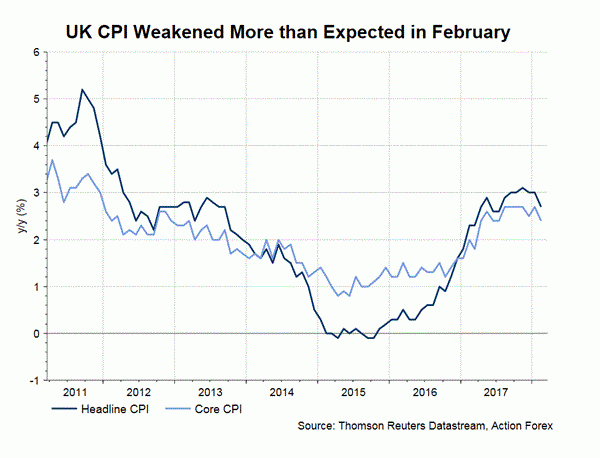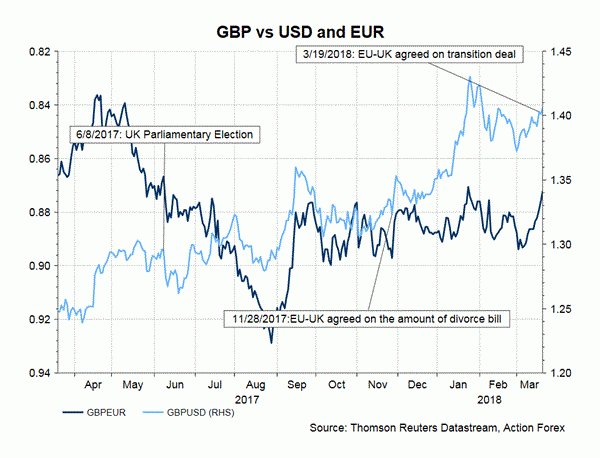BOE voted 7-2 to leave the Bank rate at 0.50%. The members voted unanimously to leave to asset purchase program unchanged at 435B pound. The members were generally positive over the economic outlook, noting that “recent data releases are broadly consistent with the MPC’s view of the medium-term outlook as set out in the February Inflation Report”. Wage growth has been in line with BOE’s expectations. This has raised the confidence that “growth in wages and unit labour costs would pick up to target-consistent rates”. Sterling jumped initially after the announcement with GBPUSD rising to a 7-week high of 1.4216. Gains were pared shortly. The market has priced in over 60% chance of a +25 bps rate hike in May.
The direction of the monetary policy decision is up. As mentioned in the minutes, “given the prospect of excess demand over the forecast period, an ongoing tightening of monetary policy over the forecast period would be appropriate to return inflation sustainably to its target at a more conventional horizon”. The members agreed that the pace of rate hikes would be gradual and to a limited extent. As noted in the minutes, “the best collective judgment of the MPC remained that, given the prospect of excess demand over the forecast period, an ongoing tightening of monetary policy over the forecast period would be appropriate”.
For the majority of the members who favored keeping the powder this month, they prefer to wait for more information before another move. As noted in the minutes, they acknowledged that there were “surprises in recent economic data and the February Inflation Report projections, conditioned on a gently rising path of Bank Rate, had appeared broadly on track”. Yet, they added that “the May forecast round would enable the Committee to undertake a fuller assessment of the underlying momentum in the economy, the degree of slack remaining and the extent of domestic inflationary pressures”.
For the two dissents, Ian McCafferty and Michael Saunders, who opted for a hike this month, they believed that “slack was largely used up and that pay growth was picking up, presenting upside risks to inflation in the medium term. A modest tightening of monetary policy at this meeting could mitigate the risks from a more sustained period of above-target inflation that might ultimately necessitate a more abrupt change in policy and hence a greater adjustment in growth and employment”.



